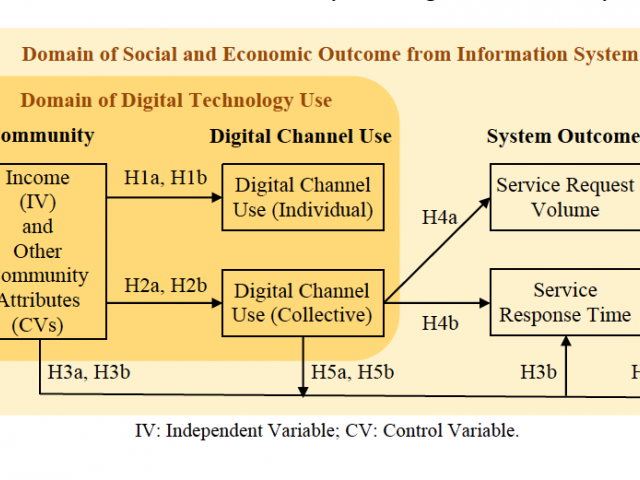
In producing and providing services to local residents, municipal governments increasingly incorporate digital technology into their Information Systems (IS). In these digitally-enhanced government IS, how does digital technology affect social justice in the use and outcomes of the systems? By applying theories of distributive justice and analyzing data collected from Boston's 311 system for residents to request non-emergency services, we have found significant and lasting disparities between wealthy and poor communities in the use of the system's digital channels (mobile app and website). While digital channels helped all communities make more service requests and receive faster responses, heavy use of the digital channels exacerbated the disparities between wealthy and poor communities in both service request volume and response time. This unexpected finding may be explained by the uneven technology adoption trajectories and distributions of repeat users in different communities, as our post-hoc analysis shows. By exposing previously hidden inequalities in the outcomes of IS, this study justifies the need to bridge digital divide at multiple levels, so that efficiency can be gained without sacrificing justice. These insights can help reconcile different theories of social justice, as well as develop effective government IS.